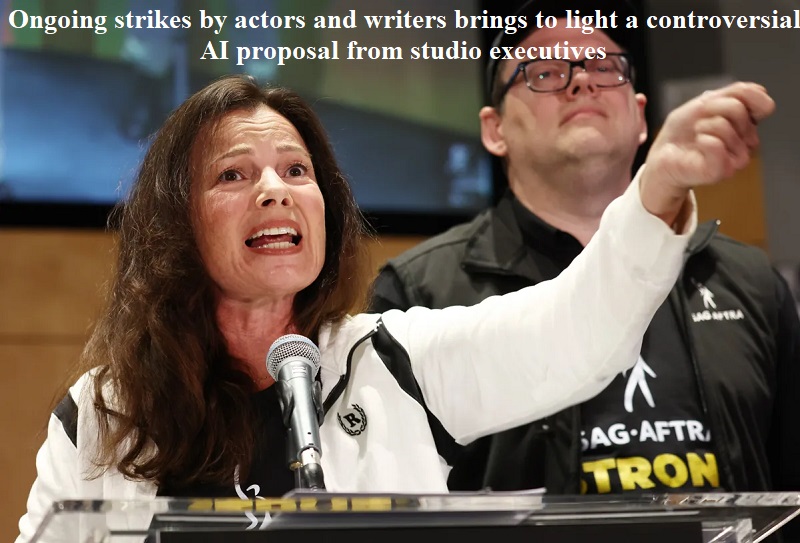
The ongoing strikes led by the Screen Actors Guild-American Federation of Television and Radio Artists (SAG-AFTRA) and the Writers Guild of America (WGA) have shed light on a controversial AI proposal put forth by studio executives. This proposal, which seems straight out of a science-fiction thriller or cyberpunk movie, suggests that the likenesses of background performers should be scanned and owned indefinitely by the studios. The revelation of this proposal has sparked concerns about the future of actors’ creative rights and the potential exploitation of their digital likenesses. With actors and writers standing together in their demands for fair compensation and protection against AI manipulation, the strikes have taken on even greater significance.
This dystopian vision of the film industry has raised alarms about the potential manipulation of actors’ digital representations in future projects, posing a significant threat to their rights and creative control.
A letter written by SAG-AFTRA’s general counsel, Jeffrey Bennett, in June emphasizes that the right to digitally replicate a performer’s voice or likeness for substantial manipulation or the creation of new digital performances should be a subject of bargaining. It argues against the imposition of terms in individual contracts that grant these rights unilaterally.
While the Alliance of Motion Picture and Television Producers (AMPTP), representing studios, streamers, producers, and distributors, has denied the reports about the AI proposal, studio executives themselves have not directly commented on the matter. However, insider sources cited in media reports have revealed that studios have already utilized technology to replace background actors with digital avatars in upcoming films. Concerningly, some actors claim they were not given the choice to opt out of being scanned, with their participation being contingent on their employment.
The strikes and the resistance shown by actors and writers against the potential exploitation of their digital likenesses highlight the need for safeguards and fair treatment in the rapidly advancing field of AI in the entertainment industry.

Post Your Comments